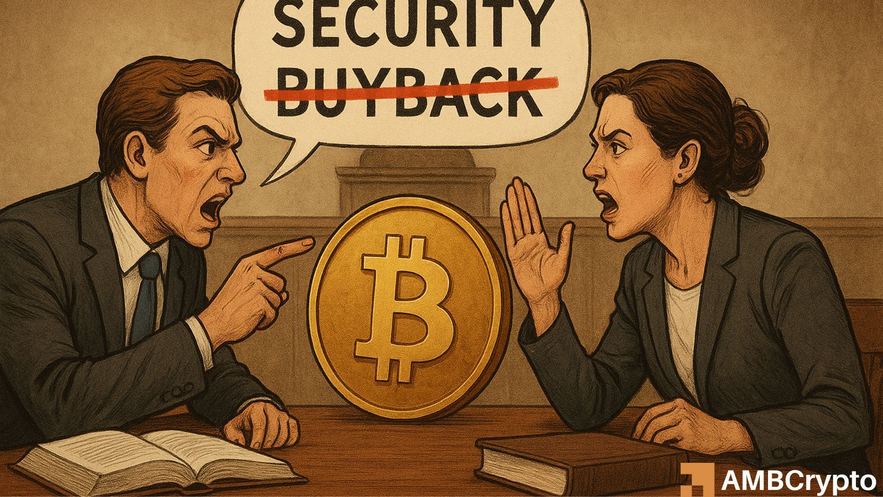
Cryptocurrency regulations have always been a murky area, and recent debates surrounding token buybacks have reignited the conversation. Amanda Fischer, a former SEC Chief of Staff, has drawn attention to this issue with her claim that token buybacks could be classified as securities transactions. But is there clarity on this matter yet?
What Are Token Buybacks and Why Do They Matter?
Token buybacks involve cryptocurrency projects, often through Decentralized Autonomous Organizations (DAOs), purchasing their own tokens from the market. This practice is typically aimed at increasing token value for holders, enhancing overall demand, and fostering project loyalty.
For instance, platforms like Uniswap (UNI) have embraced token buybacks as a strategic move to boost token value. While beneficial to token holders, critics like Fischer argue this approach may classify buybacks as regulated securities transactions.
Amanda Fischer’s Claims and Legal Implications
Fischer emphasized that, based on a 2017 SEC directive, token buybacks might qualify as securities transactions under U.S. law. She also highlighted that upcoming crypto market legislation backed by key players wouldn’t support token buybacks or similar strategies.
This position has faced backlash from notable names in cryptocurrency law. John Deaton, a prominent crypto lawyer, refuted these claims by referencing updates to SEC regulations over the years. In 2019, under former SEC Chair Jay Clayton, clearer guidance indicated that most tokens shouldn’t be classified as securities.
Ripple and XRP: The Case That Set the Stage
One of the most high-profile crypto cases revolved around Ripple Labs and its token, XRP. Although the SEC initially claimed XRP was a security, a recent court ruling by Judge Analisa Torres determined otherwise. Deaton used this example to criticize Fischer’s stance, stating, “Take the loss with class.”
Interestingly, the Biden-era SEC enforcement actions were largely rolled back during the previous administration. The only scenario where XRP sales were deemed securities-related were institutional transactions — further fueling debates about token classifications.
The Bigger Picture for Crypto Regulations
Notable projects like Hyperliquid (HYPE), Aave (AAVE), and Lido (LDO) have also ventured into token buybacks, intensifying the necessity for clear regulatory guidelines. While some market players argue this move enhances value for holders, others believe it introduces legal uncertainty.
Platforms such as Aave are at the forefront of innovative token strategies. However, until formal guidance from regulators like the SEC arrives, these practices will remain in a legal gray area.
What’s Next for Token Buybacks?
As Congress considers new crypto market structure legislation, the question of whether token buybacks qualify as securities transactions remains unresolved. Industry leaders and lawyers argue for greater clarity in the rules to enable innovation while fostering investor protection.
In the meantime, crypto enthusiasts seeking reliable investment opportunities are encouraged to research platforms adhering to evolving compliance norms.






